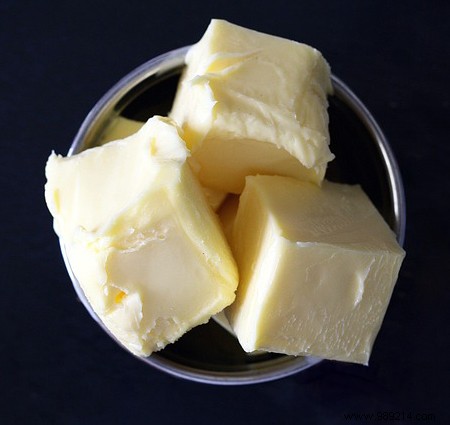
During their first months, our little ones are mainly breast or bottle-fed. Some time later, the introduction of other foods becomes mandatory and is done gradually. But what about fat?
Insofar as the omnipresence of fat on our plates is highly criticized today, many parents are asking questions about their introduction into the diet of their children, especially babies. To preserve the health of their little ones, some mothers do not hesitate to delay their consumption as much as possible. However, despite all the controversy surrounding it, fats are simply necessary for the body of young children. Indeed, vitamins K, E, D and A, contained in fats of animal or vegetable origin are required for their growth, but especially for the proper development of their brain. And that's not to mention the essential fatty acids that are omega three and six.
As for me, as soon as the pediatrician told me, I immediately added gourmet butter to my children's meals. And if my memory doesn't play tricks on me, it was in their seventh or eighth month. Of course, lipids are already present in breast milk. However, after the sixth month, their quantity is insufficient for the proper functioning of the baby's organism. Hence the need to add fat to their diet, but gradually. Otherwise, lipids can also be provided by fish and egg yolk.

Now concerning the choice of fat, it is better to play the card of diversity. For my part, I decided to prefer butter, probably out of family habit. Be careful though, because it is not just any butter. Before two years, I only use soft organic butters, even if they also exist in half-salt and with salt crystals; I reserve these for us:no need to add salt to the diet of young children.
Caution is required, however, in the quantity, because excess fat can later lead to overweight problems. A knob of butter or fresh cream once a day will be more than enough until their twelfth month. Otherwise, from a year and a half, I add it to each of his meals. Unless there is fish on the menu. In addition, the butter will always preferably be mixed raw with the vegetables and the like. Above all, avoid baking and cooking it, except for cakes and pastries.
Do you have a preference for vegetable fats? Do not panic, you are spoiled for choice starting with the essential olive oil for example. And as an alternative, you can also opt for rapeseed, sunflower, walnut, hazelnut, sesame oil... What's more, the quantity is exactly the same as with butter. Nevertheless, to limit the risk of allergies and intolerances, nothing beats first cold-pressed vegetable oils, organic if possible.